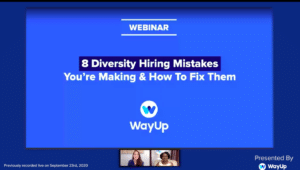The NFL is not your average employer. Its employees are multi-millionaire public figures, whose behavior gets plastered on magazine covers and prompts national conversations on our culture. Its official personal conduct policy explicitly says its employees “are held to a higher standard.”
So are they? The domestic violence saga that’s embroiled the NFL in recent weeks raises the question: In the average workplace, what happens when employees are involved in a domestic violence dispute?
According to the Society of Human Resource Management (SHRM), some 35 percent of companies report having a formal workplace policy that addresses domestic violence, which includes both incidents that occur in the workplace and those that happen offsite or in the home. Meanwhile, other employers address the issue through their broader code of conduct policies, with some indicating that even arrests can be grounds for termination, says Margaret Spence, a member of SHRM’s expert panel.
Yet as a practical matter, that doesn’t necessarily mean employers are quick to fire people who are charged with off-duty domestic violence. To start, the employer would actually have to find out about the arrest, if there even was one. “Nobody’s really running out to run post-employment background checks,” Spence says. “What I see most often is the employer finding out about the domestic violence way after it’s occurred.”
Then, employers would still need to tie the incident back to risks in the workplace. If the offender is doing the job well, if there’s no reason for co-workers to feel at risk, and if the spouse doesn’t work at the same company, a company that fires someone for a domestic violence offense could open itself up to wrongful termination suits, says Robin Shea, a partner at the employment law firm Constangy, Brooks and Smith. “It can be very hard for the employer to prove that the alleged domestic abuse had any impact on the workplace.”
That test of workplace relevance gets a little easier if the employee is a public face of the brand or a highly placed executive at the firm. Many such people work under employment agreements that outline with great specificity all the offensive behavior and public acts that could lead to their firing. In those cases, employment lawyers say that even domestic violence issues unrelated to the workplace could be grounds for termination.
“We hold people who are in higher positions of authority to higher standards of conduct because they are the face of a company,” says Larry Drapkin, a partner at Mitchell Silberberg & Knupp. “When you’re a machinist in a factory, there’s not the same public sensitivity.”
And yet either way, there is still the message it sends to employees about the leaders the company promotes and supports. If someone who has committed crimes outside of work is kept in power, says Mark Terman, a partner with Drinker Biddle & Reath, it does more than just tarnish the company’s reputation to the outside world. “It can send a bad signal to the entire workforce that the cultural norms and codes of conduct don’t mean anything,” Terman says. “There’s a high risk of eroding the culture and value of everything behind the brand.”
Meanwhile some victims of domestic violence, surprisingly, have been the ones at risk of losing their jobs. Garry Mathiason, a partner at the employment law firm Littler Mendelson, says that because the primary objective for the employer is to protect the workplace, “what some employers were doing was suspending the spouse.” For instance, a California teacher was fired last year after her abusive ex-husband showed up in the school parking lot.
Since then, California has prohibited employers from terminating or discriminating against employees based on their status as a domestic violence victim. Yet it is one of just a handful of states to do so. A bill that would provide similar protections at the federal level was introduced in the House last year and has been referred to a subcommittee.
While the NFL may be getting all the attention for this issue, it’s one that affects many workplaces. According to the Web site for the Workplaces Respond project, some 24 percent of violent incidents on the job involve current or former intimate partners who gain access to the other’s workplace.
Some employment lawyers, meanwhile, think all the attention given to the NFL’s handling of the crisis could prompt more employers to examine their policies, even if they have a very different set of workers. “The fact that this incident has gotten a lot of publicity is going to have an effect,” Mathiason says. “I think it will cause more employers to be more sensitive to this issue than they have in the past, and be much less willing to simply ignore it.”
Read Full Article at The Washington Post






